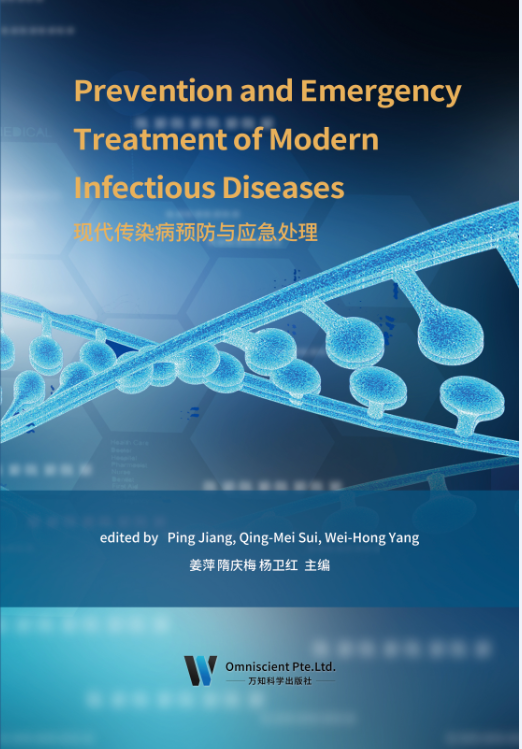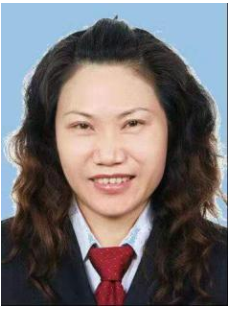
Preface
For thousands of years, infectious diseases have been threatening human health, not only bringing great disasters to human beings, but also changing the process of human history. For example, plague, influenza and smallpox have occurred many times in the world. The incidence of infectious diseases is closely related to climate, geographical environment and social factors. With the development of society, the development of prevention and evidence-based medicine has made great progress. Some infectious diseases have been effectively controlled, for example, smallpox has been eliminated, and polio and leprosy are about to be eliminated. However, due to population growth, urbanization and changes in human behavior, the pattern of infectious diseases is also changing. Gonorrhea and syphilis have revived, and some new infectious diseases have emerged, such as AIDS, dengue, Bovine Spongiform Encephali-tis, Ebola hemorrhagic fever, SARS, influenza in birds, influenza A ( H1N1 ), etc. In some areas, measles, rubella, HFMD and hemorrhagic fever are increasing. This not only brings new threats to human health, but also causes great losses to the global economy. In recent years, the resistance of community bacteria has increased, especially tuberculosis, gonorrhoeae, shigella, salmonella and streptococcus pneumococcus, which also poses a new threat to human health. Apart from the fact that most of the original infectious diseases are still spreading or re raging, newly discovered, multi variant or infectious diseases without vaccine may also cause outbreaks at any time, threatening human health and social stability. Infectious diseases will continue for a long time in the future, and the struggle between human beings and infectious diseases is not over.
This book is based on the clinical practice of infectious diseases and arranged by the way of transmission. It has the functions of teaching of the modern infectious disease and popular science, and is convenient for medical staff, staff and residents to use for reference. We should focus on popularizing the knowledge of prevention and control of infectious diseases, and maximize the ability of residents to recognize and prevent infectious diseases. Once infectious diseases occur, community residents should be able to protect and isolate as early as possible, and come to designated hospitals for treatment, so as to fundamentally control the epidemic of infectious diseases.
前 言
千百年来,传染病一直威胁着人类健康,不断给人类带来重大的灾难,甚至改变了人类历史的进程,例如,鼠疫、流感和天花等均曾多次发生世界性的大流行。传染病的发病与气候、地理环境、社会因素密切相关。随着社会的发展,预防和循证医学的发展取得了长足进步,一些传染病得到了有效控制,如天花已被消灭,脊髓灰质炎、麻风也即将被消灭。但是,由于人口的增长和城市化以及人类行为的改变,传染病的格局也在发生着变化,淋病、梅毒又死灰复燃,并且出现了一些新的传染病,如艾滋病、登革热、疯牛病、埃博拉出血热、传染性非典型肺炎(SARS)、人感染高致病性禽流感、甲型 H1N1 流感等;在部分地区,麻疹、风疹、手足口病、流行性出血热有增多趋势。这不仅给人类的健康带来了新的威胁,而且也给全球经济造成了巨大的损失。近年来,社区性细菌耐药性增强,结核病菌、淋球菌、志贺菌、沙门氏菌和肺炎球菌等细菌的耐药性最为明显,这也给人类健康造成了新的威胁。除大多数原有的传染病还在蔓延或重新肆虐外,新发现、多变异或尚无疫苗预防的传染病也随时会引起疫情暴发,威胁人类健康,影响社会稳定。传染病仍会在未来持续较长的时间,人类与传染病的斗争还未结束。
本书以传染病临床实践为基础,以传播途径为编排体例,具备现代传染病教学及科普功能,便于医务人员、工作人员、居民参考使用。我们应重点普及传染病防治知识,最大限度地提高居民认识及预防传染病的能力。一旦发生传染病,社区居民应能及早防护、隔离,并尽早到指定医院救治,从根本上控制传染病的流行。

Ping Jiang, female, the Han nationality, bachelor’s degree, born in Yucheng County, Shandong Province in October 1976. She has been engaged in the prevention and control of infectious diseases in Yucheng CDC for many years. She has published many papers in Disease Surveillance, China Journal of Traditional Chinese Medicine and Pharmacy, Friends of Health, and Journal of Clinical Medical Literature. She has been awarded the title of “Advanced Individuals Directly Reporting Infectious Diseases on the Internet” by Shandong CDC. She has been rated as “Advanced Individual” by the Health Bureau of Dezhou City for many years in a row. She is a member of Dezhou Infectious Disease Prevention and Control Committee.
姜萍,女,汉族, 1976 年 10 月生,山东禹城人,本科学历,在禹城市疾控中心从事传染病防控工作多年。在《疾病监测》《中华医药杂志》《健康之友》《临床医药文献杂志》中发表多篇论文,曾被山东省疾控中心授予“传染病网络直报先进个人”称号,连续多年被德州市卫生局评为先进个人,德州市“传染病预防控制”委员会委员。

Qing-Mei Sui, female, the Han nationality, bachelor’s degree, deputy chief physician, born in March 1970. Since 1994, she has been engaged in clinical respiratory internal medicine, digestive internal medicine, preventive health care, family planning and immunization, grass-roots military patrol and other work for more than 10 years, and has published more than 10 academic papers. She has won the honorable title of Excellent Doctor of Shandong Armed Police General Hospital. In 2007, she was engaged in the prevention and control of infectious diseases, including rabies, brucellosis, hand, hand-foot-and-mouth disease, diarrhea, influenza A, etc. She has participated in many provincial and municipal scientific research projects and published more than 20 academic papers. She won the honorary titles of Advanced Worker of Jinan Health and Family Planning Commission, Advanced Individual of Disease Control System at provincial and municipal levels, and Excellent Communist Party Member.
隋庆梅,女,汉族, 1970 年 3 月生,本科学历,副主任医师。自 1994 年起从事临床呼吸内科、消化内科、预防保健计免科、基层部队巡诊等工作 10 余年间,发表10 余篇学术论文,获得了山东省武警总医院优秀医生的光荣称号。自 2007 年起从事传染病的防控工作,包括狂犬病、布鲁氏菌病、手足口、腹泻病、甲型流感等,参与多项省级、市级科研项目,发表学术论文 20 余篇,荣获济南市卫计委先进工作者、省、市级疾控系统先进个人、优秀共产党员等荣誉称号。

Wei-Hong Yang, female, the Han nationality, bachelor’s degree, deputy chief physician of public health, born in Jiyang District, Shandong Province in June 1976. Her major is preventive medicine. For many years, she has been engaged in the prevention and control of infectious diseases, emergency response to public health emergencies and other disease prevention and control work. She is familiar with the epidemiological investigation and disposal process of key infectious diseases, and has rich experience in the prevention and control of infectious diseases and the disposal of public health emergencies.
杨卫红,女,汉族, 1976 年 6 月生,预防医学专业,本科学历,山东省济阳区人,公共卫生副主任医师。多年来一直从事传染病防控及突发公共卫生事件应急处置等疾病预防控制工作,熟悉掌握重点传染病的流行病学调查处置工作流程,具有丰富的传染病防控工作及突发公共卫生事件处置工作经验。